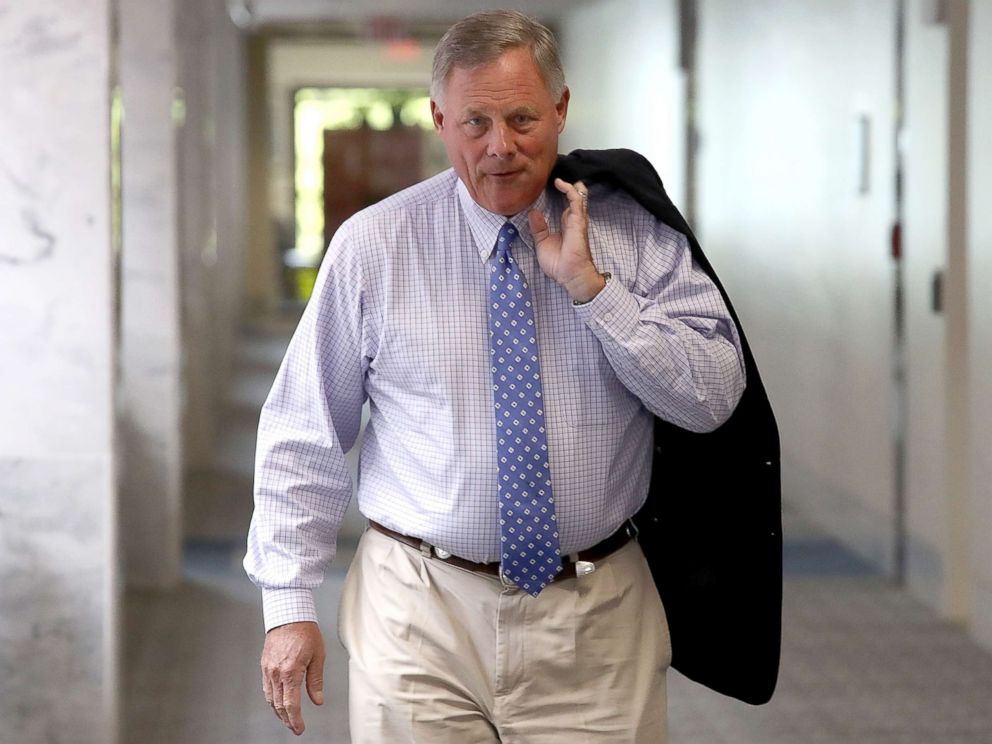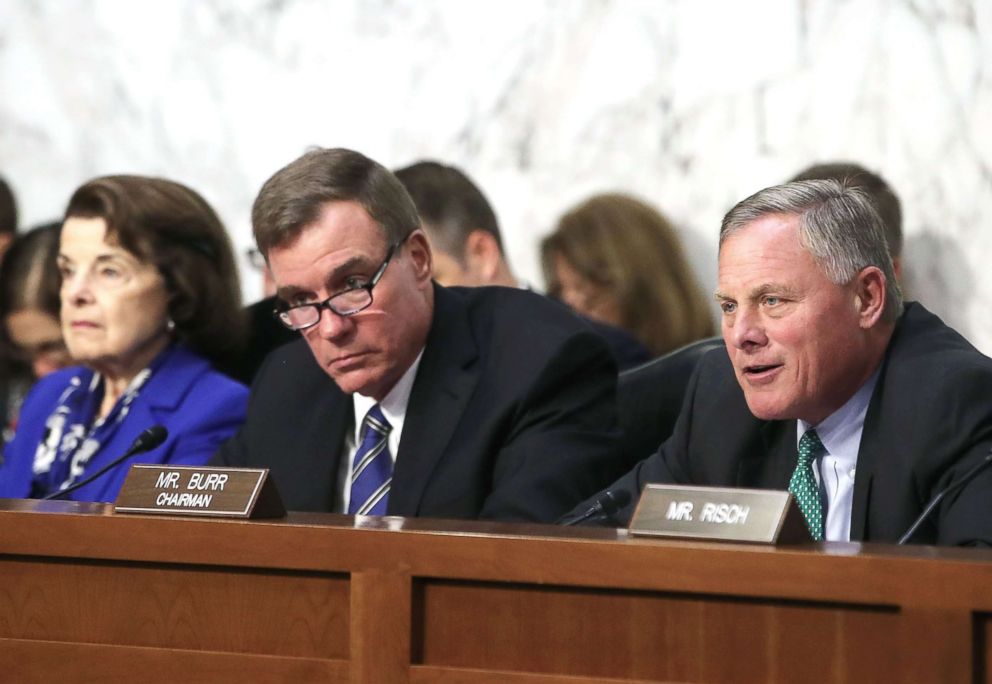Senate Intel chairman intends to recall DNI, inspector general in Ukraine probe back to the Hill
Sen. Richard Burr said his panel will have to start from "square one."
Senate Intelligence Committee Chairman Richard Burr said Tuesday that while he fights to secure in-person testimony of the whistleblower, whose formal complaint about a phone call between President Donald Trump and Ukrainian President Volodymir Zelenskiy ignited the current House impeachment inquiry, his panel's probe will continue with a focus on the whistleblowing process.
The Republican from North Carolina said the lack of agreement with the whistleblower's attorneys meant that his panel had to start from "square one," recalling Intelligence Community Inspector General Michael Atkinson and acting Director of National Intelligence Joseph Maguire, along with CIA General Counsel Courtney Elwood and others at the Justice Department who are expected to be summoned. Burr said he intended to delve into details of how Atkinson investigated the complaint over a two-week period before the complaint eventually made its way to Congress.

But obtaining testimony from the whistleblower was on Burr's mind as he spoke to reporters.
"This is a very serious charge the whistleblower has made. I cannot envision a scenario where we would not want to have legal counsel staff talk with the whistleblower in person," said Burr, who added that the committee had specifically invited the individual, an intelligence official, to testify, adding that the lawyers "haven't even offered to make them available."
"They haven't been specific as to their reason," Burr said of the lawyers. "I don't know how to put into context the whistleblower's claim. I've read the transcript. Is that a high crimes and misdemeanors -- the conversation that went on? I don't see it. That's my judgment. I'll let a case be made that it is. I don't think that's what they'll come with."
Mark Zaid, an attorney for the whistleblower, appeared to dispute Burr's characterization of the talks, telling ABC News in a statement, "We have been in repeated contact with both the Majority and Minority of the Senate and House Intelligence Committees and have been clear that what happens with one would happen with both in a non-partisan manner. Given the obvious security concerns associated with the whistleblower's identity, addressing the process that has occurred, which is always important, is candidly not time sensitive and can certainly be dealt with at a later date or through alternative means that enable the Committee to learn what is needed to accomplish its oversight authority."

At the heart of the complaint is the claim that the president ordered aid to be withheld from Ukraine until its leader agreed to investigate Democrats, including his potential 2020 rival, former Vice President Joe Biden. Trump has said he did nothing wrong, that there was no quid pro quo.
One Democratic source with knowledge of the matter said the real dispute is likely the very real concern that Republicans on the House Intelligence Committee could expose the whistleblower's identity, something for which Trump has repeatedly requested.
There was some talk of concealing the individual's identity or perhaps interviewing the whistleblower behind a screen or having the person submit written answers to questions, but there has been no agreement.
Burr bristled at any comparison between his investigation and what is happening in the House.
"The House is on a witch hunt," the chairman charged. "They're calling in everybody and anybody they feel like is linked to this reported claim."
The probe in the Senate is far different, but the chairman did not rule out that the scope might widen.
"I'm only concerned with the whistleblower, the accusation and the process that they went through," Burr said of his panel's probe. "If when I get through that, there's a reason to open the aperture, we'll make a decision as to whether we do that. But understanding the claim, how it came about, what process they went through, I mean that's at the heart of counterintelligence."
ABC News' Ali Dukakis contributed to this report.




